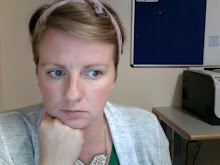
***MS WARRINGTON'S AND MS GEORGIOU'S CLASS ONLY***
This work is to be done by end of Thursday, 16th December:
Please find out about the history of the BBC as a media institution & how it has made use of technological change to reach its audiences. Answer the questions below in as much detail as you can, either on your blogs or in your exercise books, using this website (and any other sources you wish to find):
http://www.bbc.co.uk/historyofthebbc/innovation/index.shtml
1. Who invented radio and when?
2. When was the BBC formed?
3. What was the vision of the first general manager for the BBC's purpose - and what was his name?
4. What does it mean that the BBC is 'independent' or 'impartial' and why is this important?
5. In what decade was TV invented?
6. How did the BBC change during World War II?
7. What new radio stations started up on the BBC in the 1960s?
8. Why did the BBC quarrel with the government in the 1980s?
9. What major technological development saw the BBC change the way they broadcast radio in the 1990s?
10. How have the ways the BBC reaches it audiences developed since 2000? Give as many facts as you can.
12. How the arrival of digital broadcasting affect BBC radio (name some of the new stations that were created)?
If you missed the lesson, or you didn't fully understand it on first viewing, you should watch the technological convergence video again now.
Thanks, Ms Warrington
ALSO for Ms Warrington's class: ONLY 3 STUDENTS have attempted to put their radio station research work up on their blogs. Not only have I totally lost my voice, I'm now disappointed too :-( Please sort this out before I next see you. You know who you are. Your task was to write a detailed post on your blog about a station you listen to, covering all three sides of the media triangle: target audience - who listens to it, where &and why; institution/producer - who makes it and how they broadcast it incl. use of convergence; product - what it's like (website design, typical programmes, kinds of music/djs)** The star prize goes to Asad for the best research post so far.
